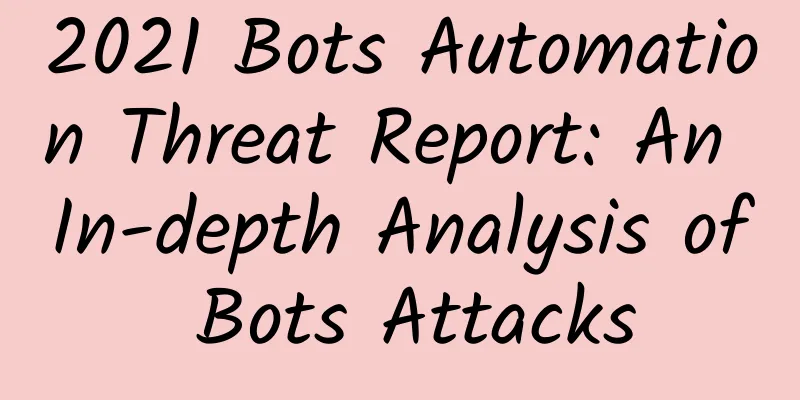Can operators make money without doing anything?

|
This article is reprinted from the WeChat public account "悲了伤的白犀牛", written by 悲了伤的白犀牛. To reprint this article, please contact 悲了伤的白犀牛 public account. After experiencing the "golden decade" of making money without doing anything, today's operators are now faced with the question of whether to make money by kneeling or standing up, as the traditional communications market is saturated and the competitive environment is becoming increasingly harsh. There is a classic dialogue in Let the Bullets Fly: Master Tang: "Do you want to stand or make money?" Zhang Mazi: "I want to stand and make money!" Master Tang: "No." Zhang Mazi took out a gun and slammed it on the table: "Can this make money?" Master Tang: "Yes, in the mountains." Zhang Mazi took out the official seal: "Can this make money?" Master Tang: "Yes, kneel down." Zhang Mazi put the official seal + gun together: "This + this, can you make money while standing?!" In fact, after experiencing the "golden decade" of making money without doing anything, today's operators are now faced with the question of whether to make money while kneeling or standing up in the face of the saturation of the traditional communications market and a harsh competitive environment. 1. The traditional market is saturated, making it increasingly difficult to make money, leading to intensified competition First, after more than a decade of enjoying the demographic dividend, it was finally completely exhausted in the third decade of the 21st century. In the past two years, it has been difficult to rely on new users to drive performance growth. Recently, operators' customer management strategies have focused on retaining old customers rather than attracting new users. Second, the traffic dividend brought by 4G could normally support the development of operators for 5-10 years. Unfortunately, in the price war among the three operators in the past two years, the traffic dividend was lost rapidly. Only seven years after 4G was commercialized and only four years after the large-scale 4G network was built, the industry leader China Mobile fell into a negative growth situation. Third, the low value of pillar businesses is becoming more and more serious. Traditional voice, short message and other services have become less and less valuable, and the price of traffic services is also getting lower and lower. However, the business system of operators is still mainly based on the sale of basic resources. They have been shouting "avoiding pipelining and channelization" for many years, and this time the wolf is really coming. The reality is that the operators' ability to make money is declining. Although the scale of profits still seems huge, it can be said that all the money is hard-earned, earned by excessively consuming the time and energy of grassroots employees. Some provinces have even suffered serious losses. The industry law revealed behind this is that the future profit margin of infrastructure is very small, and its core role is to empower the national economic development. This is its historical positioning. The operators obviously see this historical law clearly, but they all want to change their fate! 2. The trapped beast is still fighting, causing operators to "kneel down and lick the users" Currently, operators’ networks, products and services are basically the same, which inevitably leads to the three major operators falling into a situation of homogeneous competition. Under homogeneous competition, current operators only have two weapons: one is price war; the other is improving services. First, the tragic consequence of the price war is the decline in package charges and business value. The external manifestation is the decline in traffic charges, the pillar business of the three major operators, for several years. Later, a large number of low-cost unlimited packages appeared. In order to retain old customers and attract new users, the operators almost emptied their assets and shook the foundation of their development. Second, to break the dilemma of homogeneous competition, operators can choose product innovation, business innovation and service level improvement. It must be said that with the innovation ability of operators, service level improvement is easier to achieve for operators than product innovation and business innovation. The heavy responsibility of improving service level can only fall on front-line employees, so we have seen many "abnormal" user satisfaction assessment requirements and customer service requirements in recent years. 3. The company "kneeled down" to lick the customers, causing frustration at the grassroots level and unbearable suffering for employees The operators are incompetent and can only lick the customers, and the responsibility for licking the customers falls on the front-line employees. This makes the grassroots employees feel aggrieved and the front-line employees miserable, because the operators' customers have been spoiled and will complain if they disagree. If they don't get compensation, they will escalate the complaint. If that doesn't work, they will report to the Ministry of Industry and Information Technology. There are also ways to expose the problem on Weibo, hang banners on office buildings, etc. There is always a way to make the operators surrender. Just think about it, with the huge number of WeChat users, does it have a customer service hotline? You can't even find online customer service! How hard is the life of grassroots employees? According to the points summarized by Teacher Fu, the most basic unit of the current operators (except for the grid) - the county company is currently plagued by serious diseases, with generally low salaries, high turnover rate, monthly training and setting up stalls on the streets, and 70% of their time wasted on disorderly and meaningless work. 1) Everyone has KPI, and everything revolves around KPI indicators. There is no position without KPI. 2) Repeated and repetitive work: setting up stalls and training (which is actually a disguised form of setting up stalls and sweeping buildings and villages). 3) Low-level positions and low salaries: The job levels of front-line employees are very low, and the salary of many county company employees is around 2,000-3,000. 4) The staff turnover rate is extremely high: many new employees leave the company within a few months after they arrive, because they cannot associate China Mobile with the job of setting up stalls and training all day long. The gap is too big, and the cost-effectiveness of the job is too low. 5) Meetings, PPTs, and data: I’m constantly busy all day long. 6) Leaders get carried away and think of new business, which makes life difficult for their grassroots employees every day. In short, the grassroots employees in the huge empire of operators are actually very frustrated and helpless! A very miserable group of people!!! 4. Can operators make money standing still? There is no doubt that the future profit margin of infrastructure is very small. This is an unchangeable fact. Operators can only make money by kneeling. If they want to make money standing up, they must jump out of the increasingly small communications market and develop into the digital market. However, the digital market is not so easy to get into. On the one hand, the business model of the industrial market is complex and the industry barriers are deep. Operators who have been playing in their own backyards and have long relied on one trick to dominate the market are facing great challenges in entering unfamiliar professional fields, whether for their employees, mechanisms or technical capabilities. The simplest example is: if you ask account managers to sell SIM cards and private lines, they can do it with ease, but when it comes to selling cloud, CDN and integration projects, most account managers are timid before they even open their mouths, because they really don’t understand! More importantly, their support system cannot support them to do this. For example, they dare to promise customers "If you use China Telecom's card, I guarantee that you will have signal everywhere in the country", but they dare not promise "If you use China Telecom's cloud, I guarantee that your product performance, richness and stability will exceed Alibaba Cloud". They are not sure! On the other hand, the competition in the industry is more intense. Traditional enterprises are in a strong position and are also changing themselves. They are no longer waiting for the barbarians to revolutionize. More importantly, leading Internet companies such as BAT, which have deeper technical accumulation and more thorough understanding of the business, are also eyeing them. It is too difficult for operators to compete with these Internet giants. After so many years, they have almost never won! In fact, if we take stock of several tracks in the digital market, operators do not have much advantage. For example, cloud computing is the infrastructure in the IT field and the basic platform of the future basic network. At present, HAT has become a leading manufacturer. Mobile Cloud and Tianyi Cloud are gearing up, but whether they can stand is still questionable. There is not much time left. Once the window period is over, the door will be closed. For example, platform-level products have a huge space, but they require strong development capabilities and teams. This is a huge challenge for operators. The simplest point is that they cannot afford the wages of senior coders. However, there is no other way to make money standing up. |
<<: How IPv6 works in the Internet
>>: Wireless network signal optimization method during WLAN system implementation
Recommend
My boss told me not to use strings to store IP addresses, no!
[[432371]] How to store IP address data in the da...
5G unlocks new solutions for the medical industry
5G unlocks new solutions for the medical industry...
Campus "Full Wireless" Lets Data "Speak"
The construction of the campus network of Beijing...
CentOS8 installation screen prompts No match for argument: screen
CentOS8 has been released for some time. I person...
RAKsmart flash sale server starts from $30/month, cluster server starts from $142/month, in the US/Japan/Korea/Hong Kong data centers
Earlier this month, I shared information about RA...
RackNerd: Low-cost US VPS starting at $10 per year, multiple data centers in San Jose/Los Angeles/Seattle/New York, etc.
RackNerd has not released any new promotional pla...
Capital favor continues to rise, and 5G development will receive another 100 billion hot money in 2021
In 2019, my country's 5G commercial use was o...
Friendhosting New Year Sale 25% off all VPS/virtual hosts, VPS half-year payment starts from 12 euros
Friendhosting has launched a promotion titled New...
How should operators coordinate the development of 4G/5G during the “gear shift period”?
[[351567]] Recently, the two topics of "5G, ...
What will the Internet look like in 10 years?
The Internet has evolved tremendously over the pa...
New productivity of future campuses: enlightenment from the campus network upgrade and reconstruction of Nanjing Jiangbei New District Pukou Foreign Language School
The rapid development of information technology h...
What does cutover mean in network engineering?
1. Main contents of this article What types of bu...
Why are the salaries of network engineers so different?
What are the salaries of network engineers? In fa...
DogYun Hong Kong MG Data Center BGP Line Classic Cloud Server Simple Test
The tribe has shared information about different ...
With 5G commercialization imminent, what new moves will the three major operators make?
5G pre-commercialization is imminent, and the thr...









